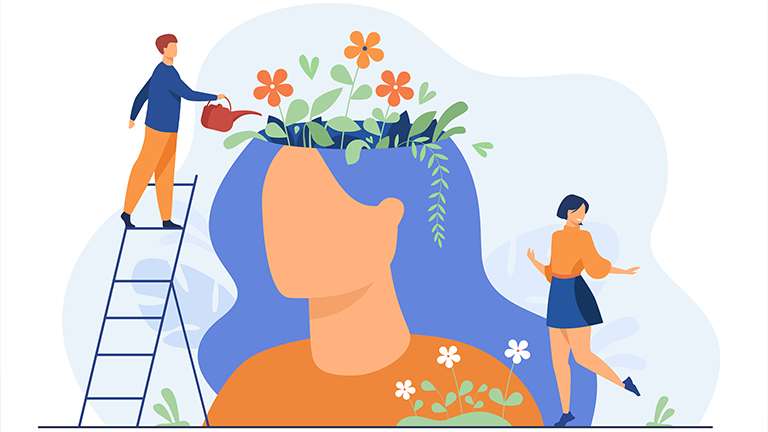Mental health is just as crucial as physical health, yet it often gets overlooked in our busy lives. With rising stress levels, anxiety, and depression, learning how to improve mental health naturally is more important than ever. This guide explores natural mental health remedies, lifestyle changes, and holistic mental health practices to help you reduce stress and anxiety, boost mood naturally, and enhance overall well-being.
1. Practice Mindfulness and Meditation
How Meditation Reduces Stress
Mindfulness and meditation are powerful tools for calming the mind. Research shows that regular meditation:
- Lowers cortisol (the stress hormone)
- Enhances emotional regulation
- Improves focus and clarity
Try this: Start with 5-10 minutes of deep breathing or guided meditation daily. Apps like Headspace or Calm can help beginners.
2. Exercise Regularly for Endorphin Release
Best Exercises for Mental Health
Physical activity releases endorphins, natural mood lifters. Effective exercises include:
- Aerobic workouts (running, cycling) – Reduces anxiety
- Yoga – Combines movement and mindfulness
- Strength training – Boosts confidence and cognitive function
Aim for 30 minutes, 3-5 times a week for noticeable benefits.
3. Eat a Brain-Boosting Diet
Omega-3s, Antioxidants, and the Gut-Brain Connection
What you eat directly impacts your mood. Key nutrients include:
- Omega-3 fatty acids (salmon, walnuts) – Reduces depression
- Antioxidants (berries, dark chocolate) – Fights brain inflammation
- Probiotics (yogurt, kimchi) – Supports gut-brain health
Avoid processed sugars and refined carbs, which can worsen mood swings.
4. Prioritize Quality Sleep
Sleep’s Role in Emotional Regulation
Poor sleep increases stress and irritability. For better rest:
- Stick to a consistent sleep schedule
- Avoid screens 1 hour before bed
- Keep your bedroom cool and dark
Aim for 7-9 hours of sleep per night.
5. Strengthen Social Connections
Loneliness vs. Mental Health
Humans are social beings, and isolation harms mental health. Ways to connect:
- Schedule regular calls with loved ones
- Join clubs or volunteer groups
- Adopt a pet for companionship
Strong relationships reduce depression risk and increase happiness.
6. Spend Time in Nature
Forest Bathing and Sunlight Benefits
Nature therapy, or forest bathing, reduces cortisol and improves mood. Sunlight also boosts vitamin D, which is linked to lower depression rates.
Try this: Walk barefoot on grass (grounding) or spend 20 minutes outside daily.
7. Limit Screen Time and Digital Detox
Social Media’s Impact on Anxiety
Excessive screen time, especially on social media, increases anxiety and FOMO (fear of missing out).
Tips for a digital detox:
- Set screen time limits
- Turn off notifications
- Replace scrolling with reading or hobbies
8. Try Herbal Remedies (e.g., Ashwagandha, Chamomile)
Evidence-Based Natural Supplements
Some herbs help reduce stress and anxiety:
- Ashwagandha – Lowers cortisol
- Chamomile tea – Promotes relaxation
- Lavender oil – Reduces nervousness
Consult a doctor before trying supplements.
9. Practice Gratitude Journaling
How Gratitude Rewires the Brain
Writing down 3 things you’re grateful for daily shifts focus from negativity to positivity. Studies show gratitude improves long-term happiness.
10. Learn Stress-Management Techniques
Deep Breathing, Yoga, and Progressive Relaxation
Effective techniques include:
- 4-7-8 breathing (inhale 4 sec, hold 7 sec, exhale 8 sec)
- Progressive muscle relaxation (tense and release muscles)
- Yoga Nidra (guided sleep meditation)
11. Avoid Alcohol and Excessive Caffeine
Their Effects on Mood Swings
- Alcohol – Depresses the nervous system, worsening anxiety
- Caffeine – Increases jitteriness and disrupts sleep
Opt for herbal teas or water instead.
12. Engage in Creative Activities
Art, Music, and Writing Therapy
Creative expression reduces stress. Try:
- Painting or drawing
- Playing an instrument
- Journaling thoughts and emotions
13. Set Realistic Goals and Boundaries
Avoid Burnout with Self-Care
Overworking leads to exhaustion. Learn to:
- Say no when overwhelmed
- Break tasks into smaller steps
- Schedule “me time” daily
14. Laugh More (Watch Comedy, Socialize)
Laughter’s Cortisol-Reducing Effects
Laughter triggers endorphins and reduces stress hormones. Watch a funny show or spend time with humorous friends.
15. Seek Professional Help When Needed
When to Consult a Therapist
If natural remedies aren’t enough, therapy or counseling can help. Signs you may need professional support:
- Persistent sadness or anxiety
- Difficulty functioning daily
- Thoughts of self-harm
Final Thoughts
Improving mental health naturally involves a holistic approach—combining mindfulness, exercise, diet, sleep, and social connections. Small, consistent changes can lead to long-term mental wellness.
Which tip will you try first? Start today and take control of your mental well-being!


